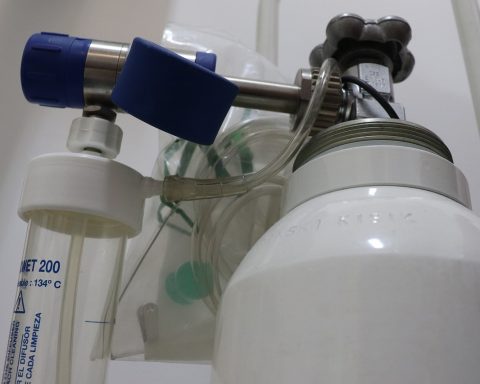Breastfed babies develop an intestinal microbiota dominated by lactobacilli and bifidobacteria that are less pathogenic than the intestinal flora of formula-fed infants. This balanced intestinal flora is fundamental for the proper development of the child’s immune system, and so it seems obvious that some characteristics of breast milk have not been reproduced in infant formulas, at least as far as prebiotics are concerned.
Human milk oligosaccharides are not found in infant formulas, yet they play an important role in people’s immune systems. These oligosaccharides are very complex and diverse, so they are not readily available for use. Different mixtures of oligosaccharides have been created in search of alternatives that mimic the prebiotic effect of breast milk. Although they are not identical, they have shown a good prebiotic effect when mixed with infant formulas.
A Supplementation Study
Some Italian researchers decided to test a mixture of oligosaccharides (90 percent galactooligosaccharides and 10 percent fructooligosaccharides) in a study called “Early Supplementation of Prebiotic Oligosaccharides Protects Formula-Fed Infants against Infections during the First 6 Months of Life.”The goal of the study was to determine whether this prebiotic mixture could prevent infections during the first six months of life through the modification of the intestinal flora.
The researchers selected some healthy term newborns with a parental history of atopic eczema, allergic rhinitis, or asthma. Then, the newborns were randomly assigned to one of the two study groups: the mixture group or the placebo group. The mixture group received prebiotic-supplemented infant formula, and the placebo group received hypoallergenic formula without supplementation.
The infants used the formulas during the first six months of life. Mixed feeding was accepted until a baby was six weeks old. If breastfeeding continued after that point, the baby was excluded from the study. Prebiotic or probiotic food supplements were not allowed throughout the study period.
The infants in the study underwent a complete physical examination once a month, including growth characteristics (weight, length, and head circumference). Stool samples were collected for microbiological analysis.
Parents kept a record of any occurrence of infectious disease (upper respiratory tract infections, otitis, gastroenteritis, and urinary tract infections). They also documented the number of infectious episodes that required antibiotics. All episodes of infection were evaluated by a pediatrician.
The Impact of Supplementation
A total of 206 babies completed the study. The anthropometric data was similar in both groups. During the six-month study, the children in the mixture group suffered fewer episodes of infection, regardless of the type of infection or the affected tissue. They also tended to have fewer infections requiring antibiotic treatment than those in the placebo group.
So, the data obtained in this study shows that this prebiotic oligosaccharide mixture helps to reduce the total number of infections during the first six months of life. Although the decrease was seen in all types of documented infections, only the data for respiratory infections showed any statistical significance.
Stool sample analysis showed that supplementation with oligosaccharides resulted in an important increase in the number of bifidobacteria compared with the placebo group.
Even though this study does not specify how the infections were prevented, the protective effect of prebiotics seems to be related to the modification of gut microbiota. This conclusion is supported by the fact that several previous studies have reported an apparent link between allergic diseases and intestinal flora early in life, which seems to contribute to the immune system’s role in protecting against allergies and possibly infections.
In summary, the intake of a prebiotic oligosaccharide mixture via infant formula appears to be a great way to improve immunity, but follow-up studies are needed to assess if its preventative effects against infection and allergies is long-lasting.








